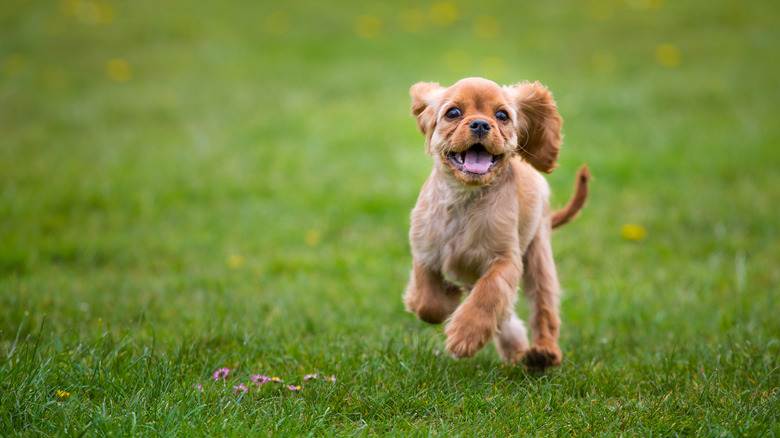How Often To Express Anal Glands In Puppies?
Nothing in the world compares to the sheer cuteness of puppies. Otherwise serious adults swiftly succumb to their furry charms. No matter the breed, each puppy sports big, adorable eyes, sweet little feet, charming puppy teeth and that indescribable scent known as puppy breath. If you look closely, however, you will find some less appealing features, like the anal glands under his tail.
Nothing quite says "I'd do anything for my dog" like regularly expressing his anal glands if he needs it. Fortunately, many puppies and older dogs don't experience anal gland issues, so you don't have to spend time performing this extremely unpleasant task. However, if your pup is prone to anal gland problems, have your vet teach you the proper way to express the buildup inside of the sacs.
Anal glands defined
Anal glands defined
The anal glands, also known as the anal sacs, are located on either side of the puppy's anus. The fluid produced by the anal glands serves as a canine calling card. When dogs sniff each other's butts, they are smelling the messages that the anal glands impart via fluid. That information includes their gender, health, and approximate age.
Under normal circumstances, the fluid in the anal sacs empties out every time the puppy poops. However, if the fluid is not excreted via the pressure of a bowel movement, an impaction may eventually develop.
Anal glands and puppy scooting
Anal glands and puppy scooting
If the fluid in the anal glands doesn't empty as it should, impaction can result. When impacted, the anal gland is usually swollen. If the impaction is not relieved, infection and abscess can occur. Suspect an anal gland impaction if your puppy starts scooting across the floor or carpeting, or if he leaves a little brown spot where he's been sitting.
If your puppy is constantly licking his rear end, that could indicate painful anal glands. Full anal glands smell quite bad, so your nose tells you there's a problem. While any puppy or adult dog may develop anal gland issues, small breeds are generally more vulnerable than medium and large dogs. Anal glands may also abscess, and this requires an emergency veterinary visit.
An abscessed anal gland is very painful, so take care when touching the rear area of your pet to perform the dogs ruptured anal gland abscess home treatment. An abscessed anal gland may rupture, spreading pus and blood. If the abscess has not ruptured, the vet will lance and clean it. Antibiotics are prescribed to minimize infection.
Expressing impacted anal glands
Expressing impacted anal glands
Anal gland expression is an art and science, although it's not much fun for any discipline. To perform the procedure, have a helper hold the puppy while you express the glands. Place the dog so she is on all fours, and, while wearing latex gloves, place some lubricant such as petroleum jelly on your index finger. Gently insert your index finger into the puppy's rectum, and then put your thumb outside the anus, allowing it to "meet" your index finger on the inside.
You should feel a pea-sized item at the 4 o'clock and 8 o'clock positions around the animal's anus. Put a paper towel behind the puppy, and then gently squeeze until you can barely feel the anal sac. Repeat on the other side. The fluid is thin and brown.
If the fluid is thick, or a color other than brown, this could mean an infection is present, so call your vet. You may also want to schedule regular visits with your vet so their staff can express the anal glands. Most dogs won't need such expression more than twice a year unless they are experiencing problems.
Preventing anal gland issues
Preventing anal gland issues
While there's no guarantee that a dog won't eventually experience anal gland issues, if you have a puppy there's the advantage of starting him off right from the get-go. Rescued dogs often experience anal gland issues, and that may occur because the animal has not received good quality food or care, as well as being subject to the stress of a shelter. To avoid problems, ask your vet's advice about the best high fiber dog food for anal gland problems.
If your dog's anal glands frequently impact or abscess and a change in diet doesn't help, don't despair. You don't have to deal with constantly expressing her anal glands. Your vet can surgically remove the glands, a procedure known as anal sacculectomy. The anal glands serve no real purpose in the modern dog, and neither you nor your pet will miss them.
Always check with your veterinarian before changing your pet's diet, medication, or physical activity routines. This information is not a substitute for a vet's opinion.
